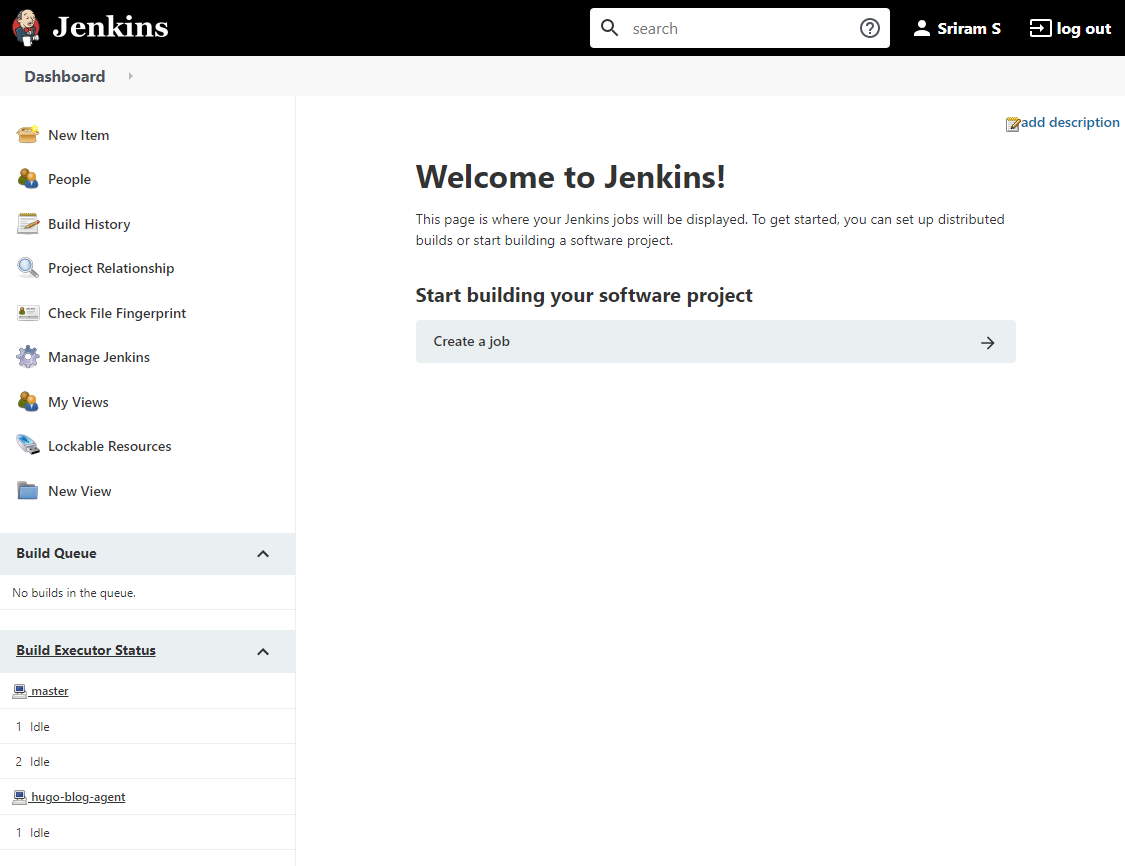

- #Jenkins promotee specific job update
- #Jenkins promotee specific job full
- #Jenkins promotee specific job code
An Active Choices Reactive Parameter can generate the same set of value options as of Active choice parameter in addition to that, it can be dynamically updated with the values based on the selection in some other build parameter that was referred to in the Active choices reactive parameter.A text box filter can be optionally shown to aid in filtering the value options.Active Choices parameters can be rendered as standard selection lists, checkboxes, and radio buttons.An Active Choices parameter dynamically generates a list of value options for a build parameter using a Groovy script or a script from the Scriptler catalog.Let’s discuss each of these parameters and what they do. Active Choices Reactive Reference Parameter.


Here comes the Active Choices parameter plugin to the rescue, which can help us render parameters/parameter’s value dynamically.Īctive Choices parameter plugin provides 3 types of parameters. Given the declarative nature of Jenkins jobs, we cannot achieve the use-case with the native Jenkins parameters available. However, often you are not aware of all the parameters in the beginning or sometimes you want to render the parameters dynamically based on the value selected in any other parameter. Jenkins supports this use-case by means of parameters that you can declare and use as Groovy variables in your Jenkins job.
#Jenkins promotee specific job code
) will be left as is in the resulting output this is almostĬertainly not what you want.While working with the Jenkins jobs (whether it’s declarative or freestyle), we often need to pass some parameters to the code being executed when you trigger the job. (Valid options: jobs, views, all) jenkins section ¶ Setting here by passing -jobs-only or -views-only CLI
#Jenkins promotee specific job update
update (Optional) If set, allows the user to specify if only "jobs" or In a file named foo.yml they will be accessible in qux.ymlīut not in bar.yml. Jenkins-jobs loads files in alphabetical order (all files in a dirĪre loaded before any files in subdirs). Note this means that the order of processing files matters. retain_anchors (Optional) If set to True, YAML anchors will be retained across files,Īllowing jobs to be composed from bits of YAML defined in separate files. Jobs, so user can be sure which instance was updated.
#Jenkins promotee specific job full
print_job_urls (Optional) If set to True it will print full jobs urls while updating To define all the keys it might be using. It with the empty string, allowing you to use those strings without having Raise an exception if there's a key in the string, that has not beenĭeclared in the input YAML files. allow_empty_variables (Optional) When expanding strings, by default jenkins-jobs will Macro, template, job-group or job name is encountered as it cannotĮstablish the correct one to use. allow_duplicates (Optional) By default jenkins-jobs will abort when a duplicate Than the start of the value will be considered relative to the starting Values containing no / will be matched againstĭirectory names at all levels, those starting with / will beĬonsidered absolute, while others containing a / somewhere other exclude (Optional) If set to a list of values separated by ':', these paths willīe excluded from the list of paths to be processed when searching recursive (Optional) If set to True, jenkins job builder will search for jobĭefinition files recursively. Tags 'include', 'include-raw' and 'include-raw-escape'. include_path (Optional) Can be set to a ':' delimited list of paths, which jenkins jobīuilder will search for any files specified by the custom application yaml True, that behavior changes and it will only overwrite the description if If no description has been defined explicitly. keep_descriptions By default jenkins-jobs will overwrite the jobs descriptions even Ignore_cache (Optional) If set to True, Jenkins Job Builder won't use any cache.


 0 kommentar(er)
0 kommentar(er)
